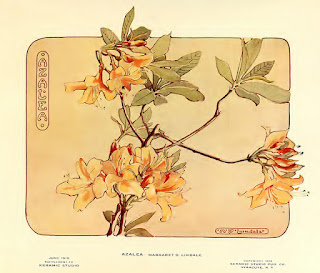Imaginary Children
I was at a drinks evening the other night for people working in the charity sector. Although the main thing I do is coaching, I still do some work in the charity and not-for-profit sector to 'keep my hand in' and it also makes a nice contrast from working one-to-one
Everyone was enjoying the free wine and chat. As the evening wore on and people found out about my niche coaching women who were trying to decide whether to have children or not, people began to open up about their stories of making the decision to have children or not. Two of the people I spoke to spoke very powerfully not having children even though they had always thought they would have children. One because she had never met the right partner and the other because of infertility. I often coach women who find themselves in a similar position and then need to decide whether they want children enough to explore options like having children on their own as a single parent, adopt or try more invasive IVF methods.
One of the most thoughtful pieces of writing on this topic is an essay by Bella Boggs called Imaginary Children. Boggs writes about the the pain of not being able to have children. As a secondary school teacher, she also explore how child-less people and couples are portrayed in literature and plays and what impact that has on her students.
It occurs to me how many of the female characters we have talked about most—Hester Prynne, Miss Havisham, Sethe—have been defined by their relationship to children, a subtle reinforcement, for my students, that who they are is at the centre of someone else’s life, their very identity. In reality, this is both true and not-true; some have doting parents, while others have parents who have disappeared into work, addiction, or other relationships. Still, even the most neglected cannot seem to imagine a life that does not involve parenthood as a milestone.
Literature holds up a mirror, reflecting our views on society including women and the family. And, literature can also influence the views and present an alternative view to the norm. I'm going to be thinking about finding examples in literature of child free women who present a more positive and affirmative view of people without children.
Everyone was enjoying the free wine and chat. As the evening wore on and people found out about my niche coaching women who were trying to decide whether to have children or not, people began to open up about their stories of making the decision to have children or not. Two of the people I spoke to spoke very powerfully not having children even though they had always thought they would have children. One because she had never met the right partner and the other because of infertility. I often coach women who find themselves in a similar position and then need to decide whether they want children enough to explore options like having children on their own as a single parent, adopt or try more invasive IVF methods.
One of the most thoughtful pieces of writing on this topic is an essay by Bella Boggs called Imaginary Children. Boggs writes about the the pain of not being able to have children. As a secondary school teacher, she also explore how child-less people and couples are portrayed in literature and plays and what impact that has on her students.
It occurs to me how many of the female characters we have talked about most—Hester Prynne, Miss Havisham, Sethe—have been defined by their relationship to children, a subtle reinforcement, for my students, that who they are is at the centre of someone else’s life, their very identity. In reality, this is both true and not-true; some have doting parents, while others have parents who have disappeared into work, addiction, or other relationships. Still, even the most neglected cannot seem to imagine a life that does not involve parenthood as a milestone.
Literature holds up a mirror, reflecting our views on society including women and the family. And, literature can also influence the views and present an alternative view to the norm. I'm going to be thinking about finding examples in literature of child free women who present a more positive and affirmative view of people without children.


Comments